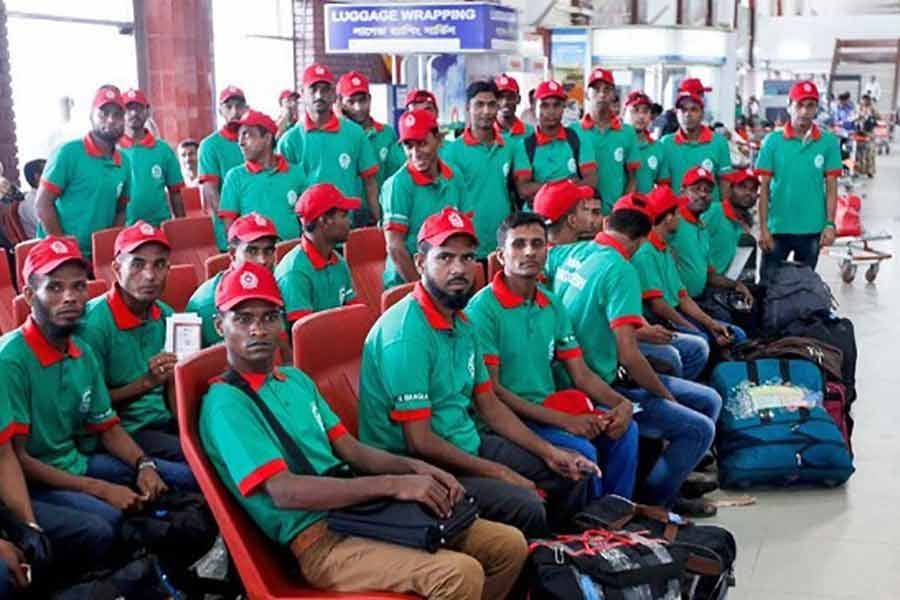Speakers have urged the worker-sending countries to go for collective negotiation with the countries of destination to stop forced return of migrants.
They noted that global migration regime obliges destination countries to look after the migrants, irrespective of their immigration status.
However, migrants remain unprotected and are being subjected to forced return during such a critical time, caused by COVID-19 pandemic. States that benefit from migrants’ remittances failed to meaningfully alleviate their sufferings as well, they noted.
They also felt non-payment of wages of migrant workers amounted to “wage theft” and demanded proper mechanism be put in place so that workers can secure reimbursement of their lost wages.
Rights activists and migration experts made their observations and plea on Wednesday at an international e-symposium on ‘Migrant Workers of South Asia: Experiences of Return, Repatriation and Deportation’.
Refugee and Migratory Movements Research Unit (RMMRU) organised the virtual programme.
In his opening statement executive director of RMMRU Prof C R Abrar said that linking repatriation with future labour market opportunities amounts to blackmailing by destination countries.
“In this trying time there has been stark deficit in protection of migrants in the countries that they help build,” he said.
Former member of the Nepal’s Planning Commission Dr Ganesh Gurung highlighted the role that diaspora community can play in rendering services to migrants in the destination countries.
He also stressed on extending psycho-social support to return migrants, who may face serious trauma.
Dr Jagannath Adhikari, senior visiting fellow at The Australian National University, Canberra stated that COVID-19 has exposed the vulnerability of migrants in the developed world as well.
L.K. Rugunage, migration expert from Sri Lanka, reported that in some countries with the support of the government employers have lowered workers’ salary by 20-50 per cent.
“This is unacceptable”, he noted. The meeting was told that Sri Lanka negotiated with destination countries that workers would tested for the virus at no cost before they are repatriated home.
William Gois, coordinator of the Migrant Forum in Asia observed that taking advantage of their government’s repatriation programmes many employers of destination countries are terminating migrant workers without clearing their due wages.
“This amounts to wage theft”, and demanded origin countries to immediately begin documenting during repatriation of workers or soon after arrival.
Dr Irudaya Rajan, chair of Centre for Development Studies at Kerala in India stated that while in the short run the situation may look bleak, eventually things would work out for the better for the migrants as new corridors of migration will open up such as in Africa and demands for new types of jobs will be created.
Prof Nasra Shah of Lahore School of Business noted that even in instances where state authorities announced that work visa would be extended the employers did not comply with them.
The declaration of amnesty and waiver of fines by some states only methods “to expedite return”, she noted.
Eminent migration expert and former ILO senior specialist Dr Piyasiri Wickramasekara noted with regret that regional processes have not been of much use when migrant workers needed them the most. To help develop appropriate policies he underscored the need for proper data generation on return migrants.
A number of academicians, rights campaigners, development partners and representatives of migrant organisations attended the symposium.


